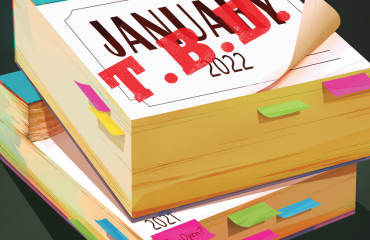Assistive Technology Occupational Therapy Fellowship Program – Veterans Affairs
An official website of the United States government
The .gov means it’s official.
Federal government websites often end in .gov or .mil. Before sharing sensitive information, make sure you're on a federal government site.
The site is secure.
The https:// ensures that you're connecting to the official website and that any information you provide is encrypted and sent securely.
The James A. Haley Veterans’ Hospital Assistive Technology (AT) OT Fellowship Program is dedicated to advancing the knowledge and skills of an OT practitioner pursuing specialty certification in the area of assistive technology.
Why choose our fellowship program?
The Assistive Technology OT Fellowship Program will expose the fellow to targeted clinical environments that align with the areas of practice covered on RESNA’s ATP examination. The majority of the fellow’s experience will be spent with the primary mentor in the OT Assistive Technology clinic. There will also be several shorter interdisciplinary rotations throughout the year in a variety of specialized settings including driver training/rehabilitation, seating & mobility, adaptive sports, speech/ language assistive technology, and SCI homecare/telehealth. During the interdisciplinary rotations the fellow will focus on advancing knowledge in that specialized area. Higher level clinical performance and reasoning skills will also be addressed throughout the rotations with ongoing mentorship from the primary OT mentors. Modules specific to OT service delivery will promote advanced practice though experiential activities, clinical caseload assignments, and purposeful mentorship that focuses on the development of advanced reasoning and practice skills. Reflective learning assignments and purposeful mentorship sessions will support the program’s teaching/learning philosophy.
Philosophy:
We believe in the development of occupational therapists into highly skilled practitioners through exposure to educational processes with a balance between didactic/academic and experiential/clinical environments.
Mission:
To provide occupational therapists with the knowledge and abilities to progress their clinical and professional skills in assistive technology OT in order to become an advanced practitioners by:
Clinical Training
Clinical training consists of managing a diverse caseload of patients with assistive technology needs, one-on-one mentoring sessions with highly experienced clinical staff, as well as a didactic curriculum component with established scholarly activities. Fellows will have opportunities to participate in interdisciplinary patient rounds, journal clubs, staff in-service presentations, and assistive technology device reviews.
Curriculum
The JAHVH Assistive Technology OT Fellowship Program will focus on the fellow’s development of knowledge, competency, and advanced practice skills in the following core areas:
Goals of the Program
To educate and train a post professional OT graduates to:
1. Meet the needs of veterans and active duty Service Members by becoming advanced OT practitioners in the area of assistive technology OT.
2. Demonstrate the use of evidence-based outcome measures and advanced clinical reasoning skills by critically assessing and appraising the current literature to guide evaluation and plan of care development that facilitates occupational participation.
3. Demonstrate understanding of the 2020 AOTA ethical principles and specialty specific ethical standards, and their implication into practice.
4. Demonstrate the ability to access and establish collaborative partnerships with stakeholders to maximize the occupational participation of clients.
5. Participate in scholarly activities such as a quality improvement project and case study development/presentation, that promote lifelong learning.
6. Exhibit the highest standards of professionalism.
Program Coordinators/Mentors
Program Co-Coordinator/Director: Katherine Litman, MOT, OTR/L
Program Co-Coordinator and Primary Mentor: Ursula Draper, OTR/L, ATP,
Program Mentor: Brighid Rebolledo, OTD, OTR/L
** Health Professions Trainees (HPTs) are appointed as temporary employees of the Department of Veterans Affairs. As such, HPTs are subject to laws, policies, and guidelines posted for VA staff members. There are infrequent times in which this guidance can change during a training year which may create new requirements or responsibilities for HPTs. If employment requirements change during the course of a training year, HPTs will be notified of the change and impact as soon as possible and options provided. The VA Training Director for your profession will provide you with the information you need to understand the requirement and reasons for the requirement in timely manner.
How to apply:
To apply please email Katherine.Litman@va.gov the following documents by April 30th
Copy of Valid OT license and NBCOT certificate OR transcripts showing an expected graduation date prior to the start of the fellowship and your scheduled NBCOT test date.
Fellows are employed full-time by the James A. Haley Veterans’ Hospital for the year-long program. Applicants must be a U.S. citizen that are a graduate of an ACOTE accredited occupational therapy (OT) program and possess a current OT license (any state)/certification prior to the program start date.
Applicants should be AOTA members and be committed to pursuing Board or Specialty Certification in the specialized area of practice.
The Fellowship will be a paid position and the fellow will be eligible for health benefits, earn annual leave and sick leave, and have paid federal holidays. There are no tuition fees associated with this fellowship.
Download the informational brochure below
Download application here Application for Health Professions Trainees
See Frequently Asked Questions below
Interviews will be conducted during the month of May.
The Fellowship Program is scheduled to start in late August and end one year later.
A fellowship will provide post-professional training in a specialized area of practice. Participation in a fellowship will give the fellow specific experience and allow him/her to gain confidence delivering specialized OT services. It will combine didactics, mentorship, and clinical practice in the fellowship area in order to progress the fellow towards becoming an advanced-level clinician. This can increase professional marketability in the future.
No experience is needed. Experience will be gained through participation in the fellowship program. Applicants should have strong interest in the fellowship program and applying for board or specialty certification after completion of program completion.
No. Any licensed occupational therapist can apply for a fellowship experience. While some applicants are newly licensed OTs, others have some basic experience, or are wanting to change practice areas. Most fellows typically have 0-5 years of experience.
The specific state you are licensed in doesn’t matter as long as your meet criteria to apply.
The fellow will be considered an experienced clinician in that specialty practice area. This will help when applying for jobs in a specialized practice area that requires experience. The fellow will also be eligible to apply for AOTA Board Certification after 2 years of practice rather than the 3 years that is required for non-fellowship participants.
If you are not already licensed, you will need to have a license before you are able to begin the fellowship experience. You do not need to have a license to apply for the fellowship experience. However, acceptance will be contingent upon obtaining a license prior to the fellowship start date.
Yes, the fellow will receive a stipend and health benefits, as well as, accrue paid time off and have paid federal holidays.
There is time built into the fellows weekly schedule to complete didactic work. However, on occasion, there may be work that must be completed outside of regular working hours.
No. The fellow will be responsible for finding your own housing. We will gladly provide recommendations/information about the surrounding areas, if needed.
Assistive Technology:
The fellow will be working with a mix of active duty service members and veterans. Ages of the population generally range from 20-80. The fellow will spend time in all areas of Assistive Technology to include: seating and mobility, virtual reality, adapted sports, drivers rehabilitation, home assessment, and augmentative and alternative communication.
The fellow will see client’s with differing diagnoses. All with assistive technology needs. The primary diagnosis will be ALS and SCI. Other diagnosis will include Polytrauma, Parkinson, TBI, CVA, and amputations.
The fellow will mainly provide individual treatments, to include evaluation and ordering, issuing and training of equipment. Primary evaluations will consist of computer access, EADL’s, emergency call systems, mounting, access to communication devices. Emphasis placed on interdisciplinary and intradisciplinary collaboration to meet clients’ AT needs.
Mental Health:
The fellow will be working with a mix of active duty service members and veterans. Ages of the population generally range from 21-75. A vast majority of the clients will be fully independent with ADLs and IADLs. However, the fellows will spend 1 month working in a traditional rehab setting with patients with ADL/IADL deficits. Most of the clients will be part of an inpatient program. Clients will range from very low to very high level of functioning from a psycho-social standpoint.
What mental health diagnoses will I see?
The fellow will see client’s with mental health diagnoses to include anxiety and trauma related disorders, mood disorders, psychotic disorders, substance/behavioral related addictions, chronic pain disorders, sleep disorders, and adjustment disorders.
The fellow will be providing the majority of their treatment in individual session however, will also conduct some group treatments. Individual treatments, will focus on addressing physical and cognitive barriers to function starting with ADLs/IADLs and progressing to social participation, recreation/leisure, community mobility etc. Group treatments will vary based on the client’s needs and the patient population in the program.
Neurorehabilitation:
The fellow will be working with a mix of active duty service members and veterans. Ages of the population generally range from 18 – 90. A vast majority of the clients will be in an inpatient SCI/Polytrauma program. However, the fellows will spend 2 months working in a SCI Home Care/ Outpatient setting and 2 months working in a community reintegration program. Clients will range from low to high level of functioning from a physical & cognitive standpoint.
The fellow will see client’s with a variety of neurological diagnoses to include traumatic brain injury, stroke, emerging consciousness, spinal cord injury, Multiple Sclerosis, ALS and many other co-occurring conditions.
The fellow will be providing the majority of their treatment in individual session however, will also conduct some group treatments. Individual treatments, will focus on addressing physical and cognitive barriers to function starting with ADLs/IADLs and progressing to social participation, recreation/leisure, community mobility etc. Group treatments will vary based on the client’s needs and the patient population in the program.




